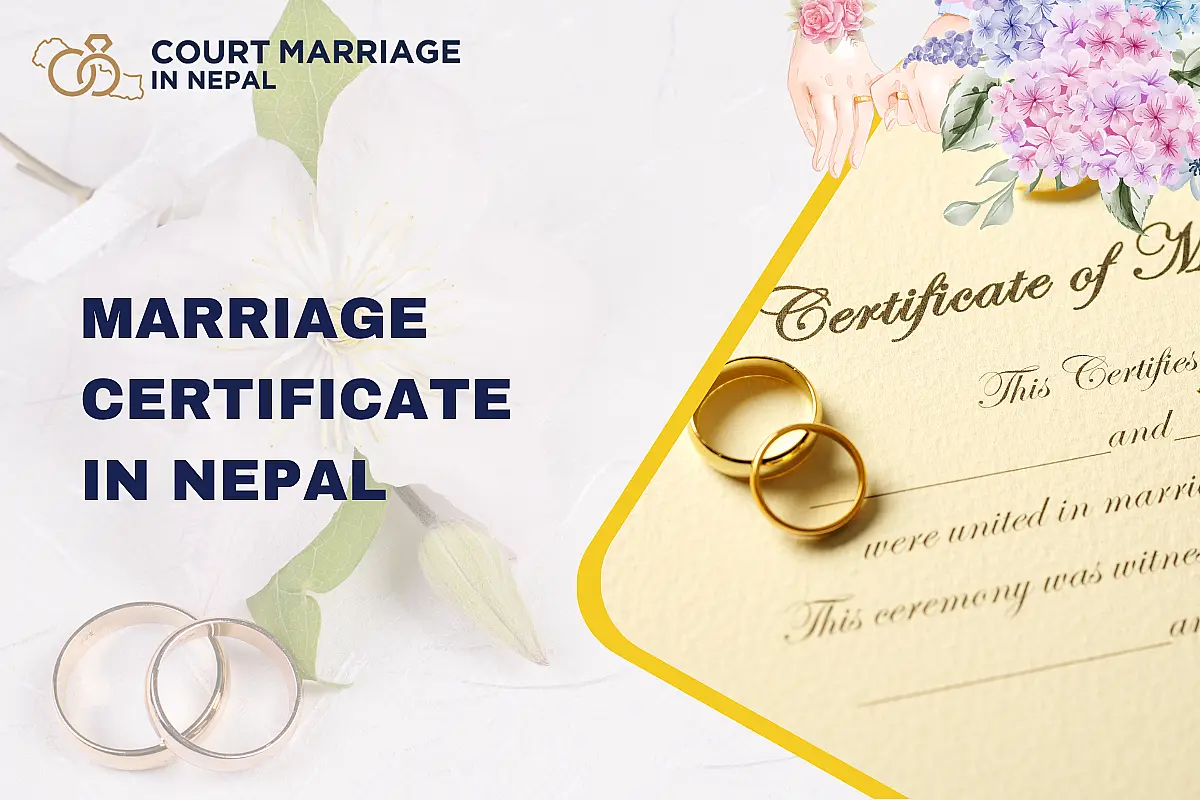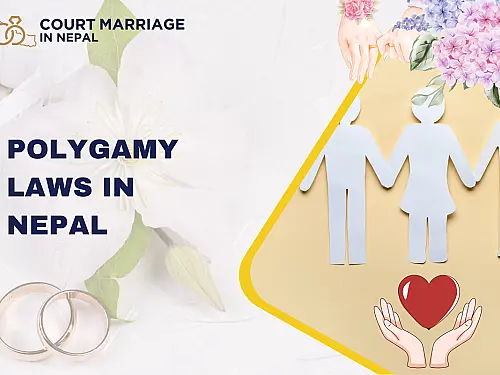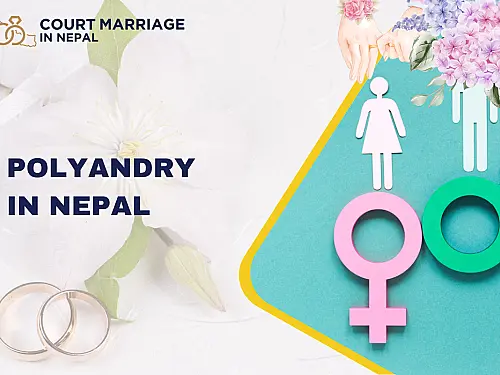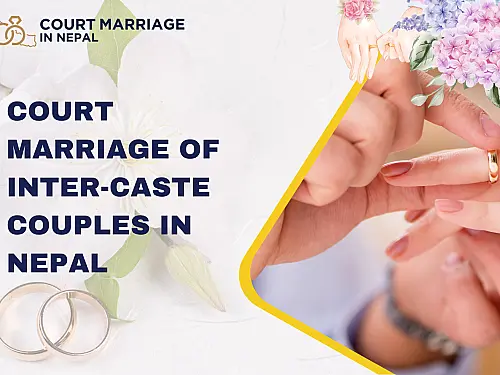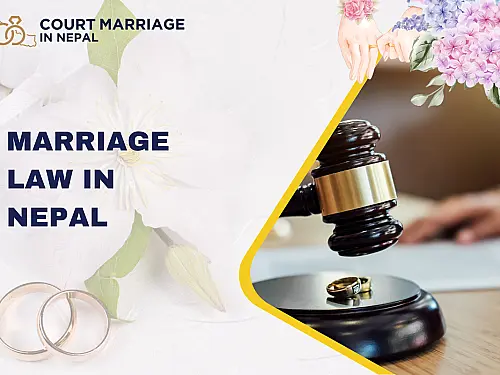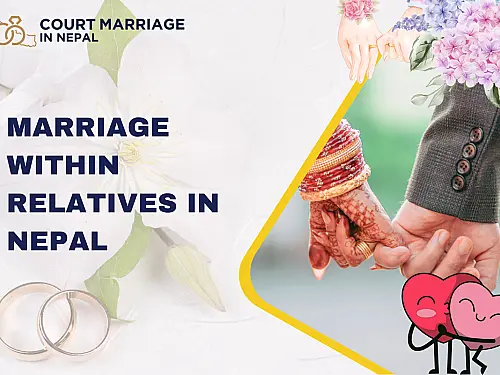Table of Contents
Introduction
In Nepal, a marriage certificate is a government-issued document that officially certifies the marriage between two people. It acts as evidence of marriage and is essential for numerous legal and administrative functions, including inheritance, citizenship changes, and visa requests. The certificate includes important information regarding the couple and their marriage, serving as a crucial document acknowledged by government bodies, courts, and various organizations as legitimate proof of marital status.
A marriage certificate is issued only once the marriage is officially registered either at the District Court (for court marriages) or at the Ward Office (for traditional marriages). This certificate is the main legal document that confirms the marriage according to Nepali law.
Issuance from the Ward Office
Local Government Management Act, 2074 (स्थानीय सरकार व्यवस्थापन ऐन, २०७४)
This legislation officially empowers local authorities, such as municipalities and rural municipalities, to perform civil registration services, which encompass marriage registration.
Section 11 (1)(p) of the Act states that local governments are tasked with “registering significant occurrences such as birth, death, migration, marriage, and divorce.”
The ward office serves as the implementing entity within the municipality to fulfill this obligation.
Marriage Law and Legal Recognition
Muluki Civil Code, 2017 (मुलुकी देवानी संहिता, २०७४)
Part 4, Family Law, of the Muluki Civil Code regulates the legal requirements, processes, and legitimacy of marriage in Nepal.
Chapter regarding Marriage (Sections 67-88) encompasses:
- Criteria for a legitimate marriage (age, agreement, family relationship limitations)
- Steps for matrimony
- Obligation for enrollment post-marriage
Section 77 explicitly indicates that a marriage must be recorded with the local registrar, i.e., ward office, for legal recognition.
Who is Eligible to Register a Marriage in Nepal?
Criteria for Marriage Registration in Nepal:
Nepali Nationals
Both parties must be citizens of Nepal and fulfill the following requirements:
- Must be a minimum 20 years old.
- Must not currently be legally married (single, divorced, or a widow).
- Should not be connected within the forbidden degrees (not regarded as incest/blood relation by law).
- Must possess mental stability.
- Must willingly agree to the marriage (not forced).
Foreign nationals
Foreign nationals can wed Nepali citizens by adhering to certain procedures, which include submitting a No Objection Letter from their embassy and fulfilling residency criteria if registering in Nepal.
Nepalis Overseas
Citizens of Nepal residing internationally can register their marriage at the Embassy of Nepal or the Consulate in their nation of residence.
Location for Registration
Ward Office
Registration for traditional or religious marriages takes place at the local ward office of the permanent residence of either the bride or the groom.
District Court
Registration for court marriages is done at the appropriate district court.
Embassy/Consulate
Nepali nationals overseas can sign up at the closest Nepali embassy or consulate.
Overview Chart - Eligibility and Registration Authority
| Eligible Person | Registration Authority | Main Conditions |
|---|---|---|
| Nepali Citizens | Local Ward Office or District Court | Must be 20 years or older, unmarried, mentally sound, not close relatives, mutual consent |
| Foreign Nationals (Marrying Nepali) | Ward Office or District Court | Letter from embassy, proof of legal stay in Nepal, and must meet marriage eligibility |
| Nepali Citizens Living Abroad | Nepali Embassy or Consulate Office | Must fulfill legal criteria and follow the registration process of the embassy |
Documents Needed for Marriage Registration in Nepal
• For Traditional Marriage (at Local Ward Office)
- Marriage registration application form (completed and signed)
- Photos in passport size of both the husband and wife
- Certificates of citizenship for both parties
- Proof of the wedding ceremony (like wedding photographs or invitation cards)
- Certificates of citizenship for parents (not always required)
- Migration certificate (if enrolling away from the original residence)
- A declaration document signed by a minimum of three witnesses and the couple.
- Presence of witnesses during submission
• For Marriage at Court (in District Court)
- Marriage registration application form (original, completed and signed)
- Passport-sized photographs (4 copies each)
- Photocopies of the citizenship certificates of both individuals
- Certificates of citizenship of witnesses (usually two witnesses)
- Single status/unmarried certification from the municipal office of both individuals.
- Certificate of temporary residence (if registering away from the permanent address, must have resided for a minimum of 15 days)
For Marriage Between Nepali and Foreign National
- Original passport and current visa of foreign spouse
- Letter of No Objection (NOC)/CNI from the embassy or consulate of the foreigner’s country in Nepal
- Marriage law of the foreigner's nation (translated and certified)
- Evidence of a 15-day stay in Nepal (temporary residency certificate)
- Passport size photos of both partners
- Application form along with any other aforementioned documents
How to Validate or Confirm a Marriage Certificate Online in Nepal
Present Condition:
Nepal does not currently possess a centralized, countrywide online platform for confirming or validating marriage certificates. The majority of verification procedures remain manual and involve physical visits or direct interactions with local offices.
Procedures to Confirm or Validate a Marriage Certificate
Determine the Registration Bureau
Court Marriage
Visit the district court where the marriage registration took place.
Traditional Marriage
Get in touch with the ward office where either spouse is permanently registered.
Check the Official Local Government Site
Certain municipalities (Kathmandu, Lalitpur, Pokhara, Bharatpur) provide fundamental online services such as:
- Details regarding the processes for registering a marriage.
- Form retrievals
- Scheduling an appointment
- Details of inquiries contact
Illustrative websites:
- www.kathmandu.gov.np
- www.lalitpurmun.gov.np
- www.pokharamun.gov.np
Reach out to the Ward Office or Registrar
Contact them by phone or email with this information:
- Complete names of both partners
- Date of wedding
- Marriage registration number (if available)
- Permanent address
If the online inquiry doesn't suffice, go to the office personally with your identification and any pertinent documents. Ask for a manual record search or an official copy.
For Court Weddings (Limited Online Inquiry)
Certain district courts permit you to look up marriage registration information by using the marriage registration number on the court's website (e.g., supremecourt.gov.np), though this service is not universally available.
Overview Chart: What You Can and Cannot Do Online
| Service Type | Online Availability | Description |
|---|---|---|
| Certificate Download/Verification | Not available nationwide | No live certificate download or QR-code verification |
| Form Download/Info | Available in some areas | Download forms, get info, and contact details |
| Appointment Booking | Available in some areas | Book appointments for in-person visits |
| Record Search (Court Marriage) | Limited (by district) | Search by registration number on some court websites |

Court Marriage Certificate Sample
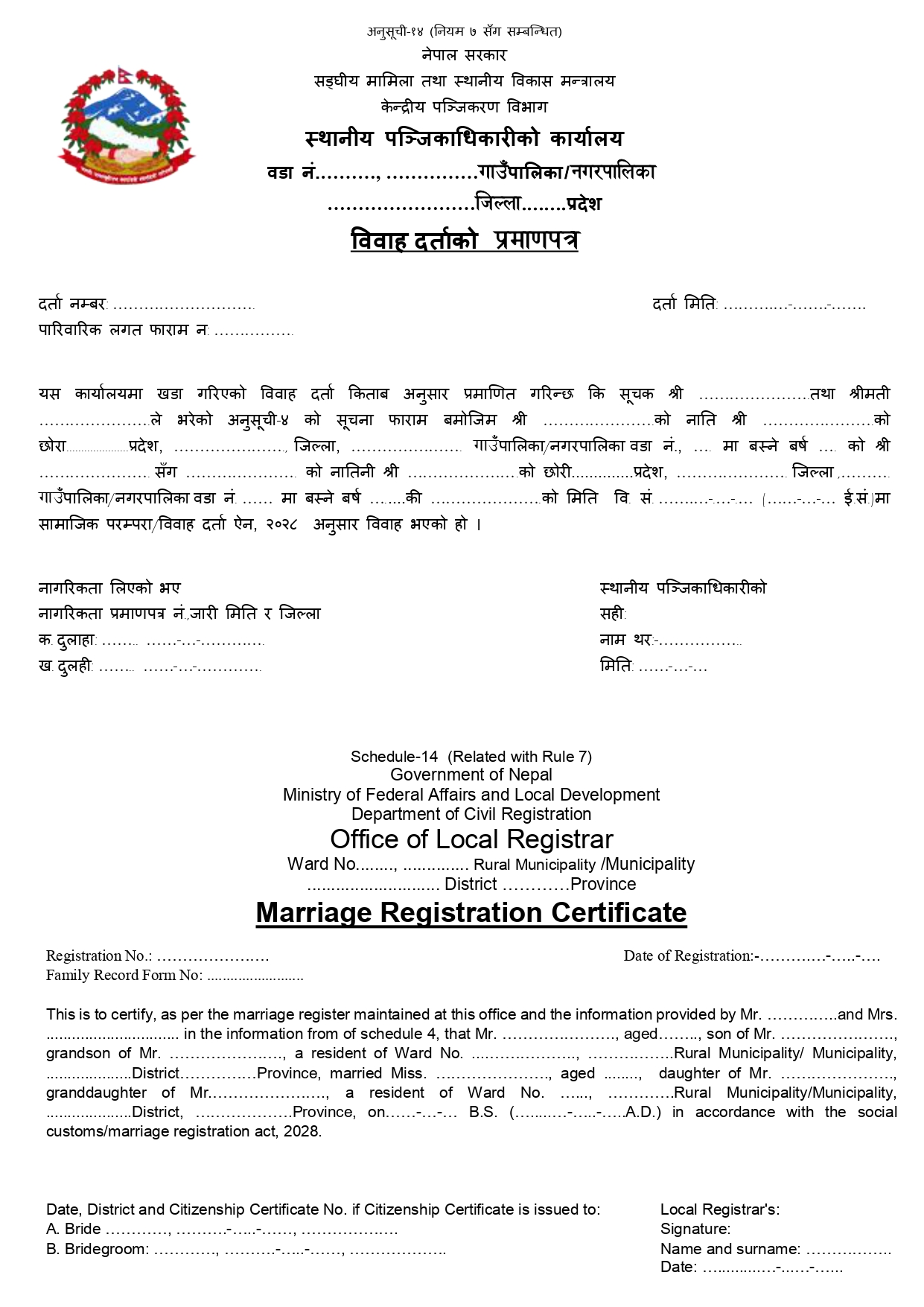
Marriage Certificate Sample of Ward Office
Conclusion
Registering a marriage in Nepal is an essential legal procedure that officially acknowledges the partnership of two people according to the law. The marriage certificate, provided after registration, is an official document necessary for multiple legal, social, and administrative reasons, like applying for visas, updating citizenship information, or obtaining inheritance rights. In Nepal, the registration of a marriage and subsequent verification or validation of the marriage certificate adheres to certain legal protocols established by the Muluki Civil Code 2017 and is supervised by local government entities, like ward offices and district courts.
Frequently Asked Questions
At Court Marriage In Nepal, a registered law firm operating as Court Marriage In Nepal Pvt. Ltd., we specialize exclusively in Court Marriage Nepal. As the first law firm in Nepal dedicated to court marriage services, we assist both Nepali citizens and foreign nationals with the court marriage registration process in Nepal, including complete legal support for court marriage registration for foreign citizens in Nepal. As a trusted marriage firm in Nepal and a licensed law firm in Nepal, we ensure a smooth, lawful, and stress-free experience. Contact us today for confidential assistance with court marriage registration in Nepal.

